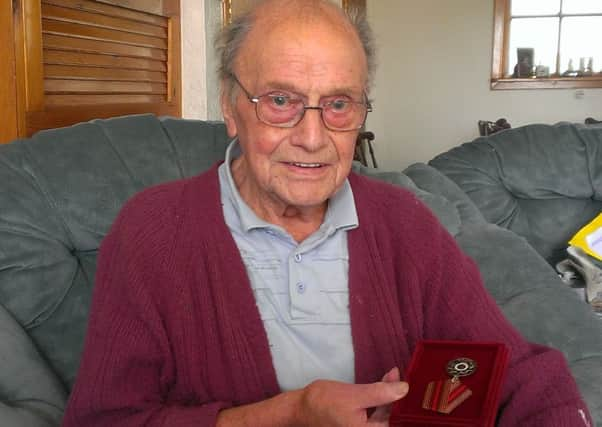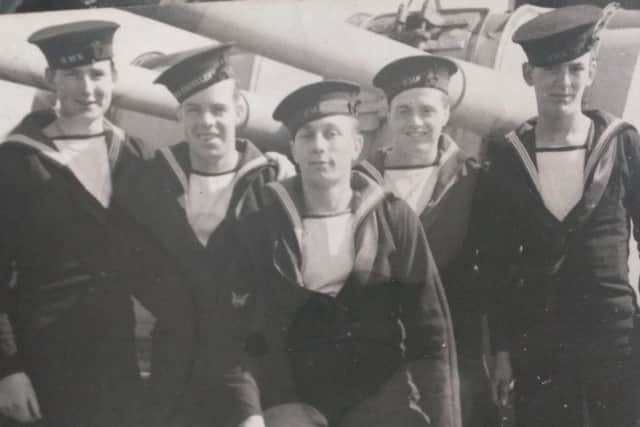Arctic star hero gets medal 70 years after war


Thomas Clegg, who was born in Brighouse, received the medal for his service aboard the HMS Sheffield where he was based in Iceland during the war.
Battling the freezing temperatures, he was a gunner on the British ships for 12 months during his service.
Advertisement
Hide AdAdvertisement
Hide Ad“You look back and think about how hard it was but in a way now it is something you wouldn’t want to miss,” said the 92-year-old.


“I can remember sitting on the gun with my full sheepskin coat and thinking I could do with something like this but as soon as you left they force they had it straight from you.
“There was also times when we had to thaw the ship’s six tonne anchor. You would think something that heavy it would just drop in.”
Mr Clegg, who now lives in Southowram, served a total four years in the navy before moving to command operations travelling up and down the country.
Advertisement
Hide AdAdvertisement
Hide AdA week before VE day, he married his wife Dorothy in 1945 and was married to her before she sadly passed away in 2013.
For 50 years he was know for helping people with their cars, setting up Tomas Clegg and Sons car body shop in Thornhill Bridge Lane before retiring when he was 70.
The Arctic convoys of World War II were oceangoing convoys which sailed from the United Kingdom, Iceland, and North America to northern ports in the Soviet Union.
Although there were two gaps with no sailings between July and September 1942, and March and November 1943, there were 78 convoys between August 1941 and May 1945,[1] sailing via several seas of the Atlantic and Arctic oceans.
Advertisement
Hide AdAdvertisement
Hide AdAbout 1,400 merchant ships delivered essential supplies to the Soviet Union under the Lend-Lease program, escorted by ships of the Royal Navy, Royal Canadian Navy, and the U.S. Navy.
Thousands of men lost their lives on the convoys taking supplies to the Soviet Union on what Sir Winston Churchill called the “worst journey in the world.”